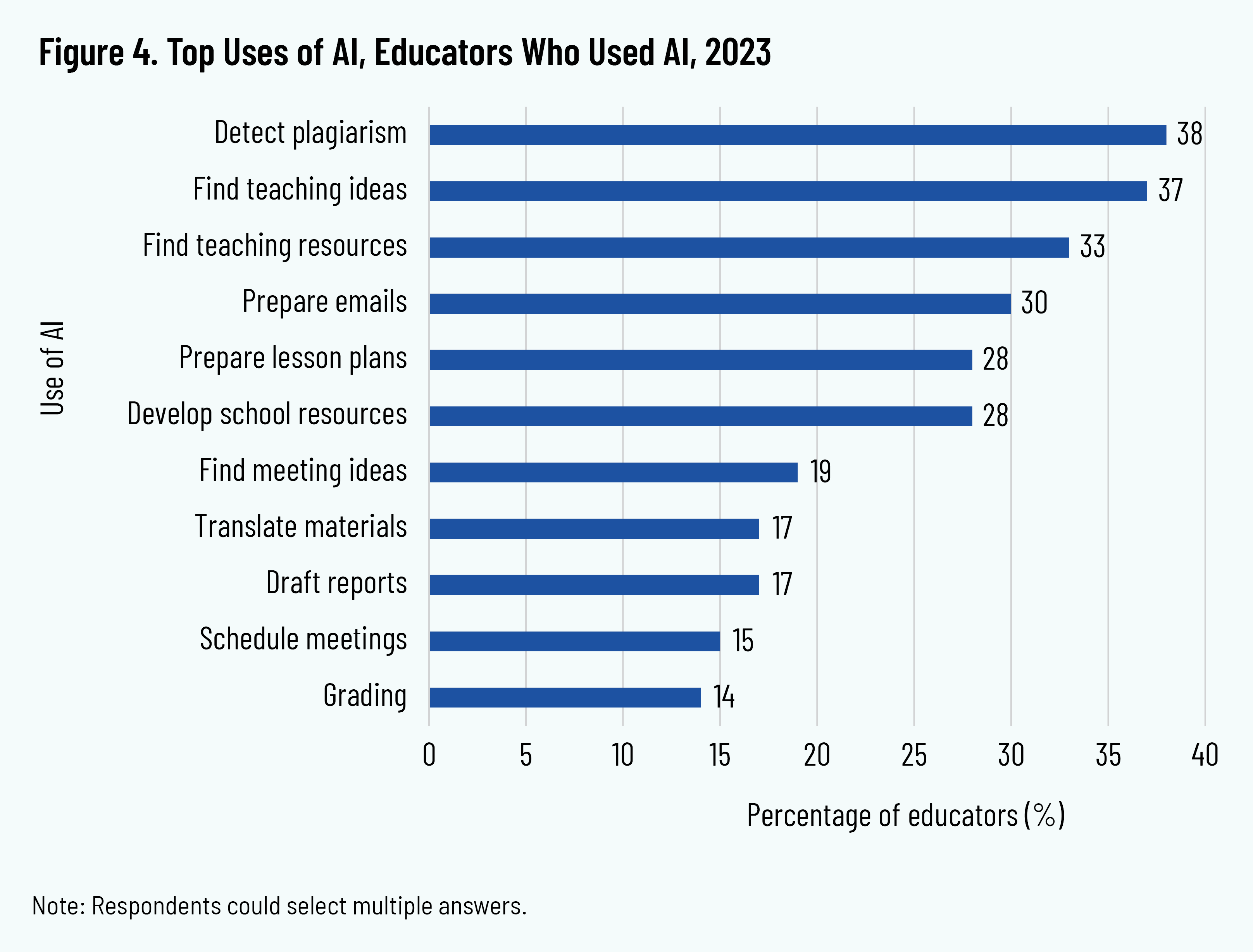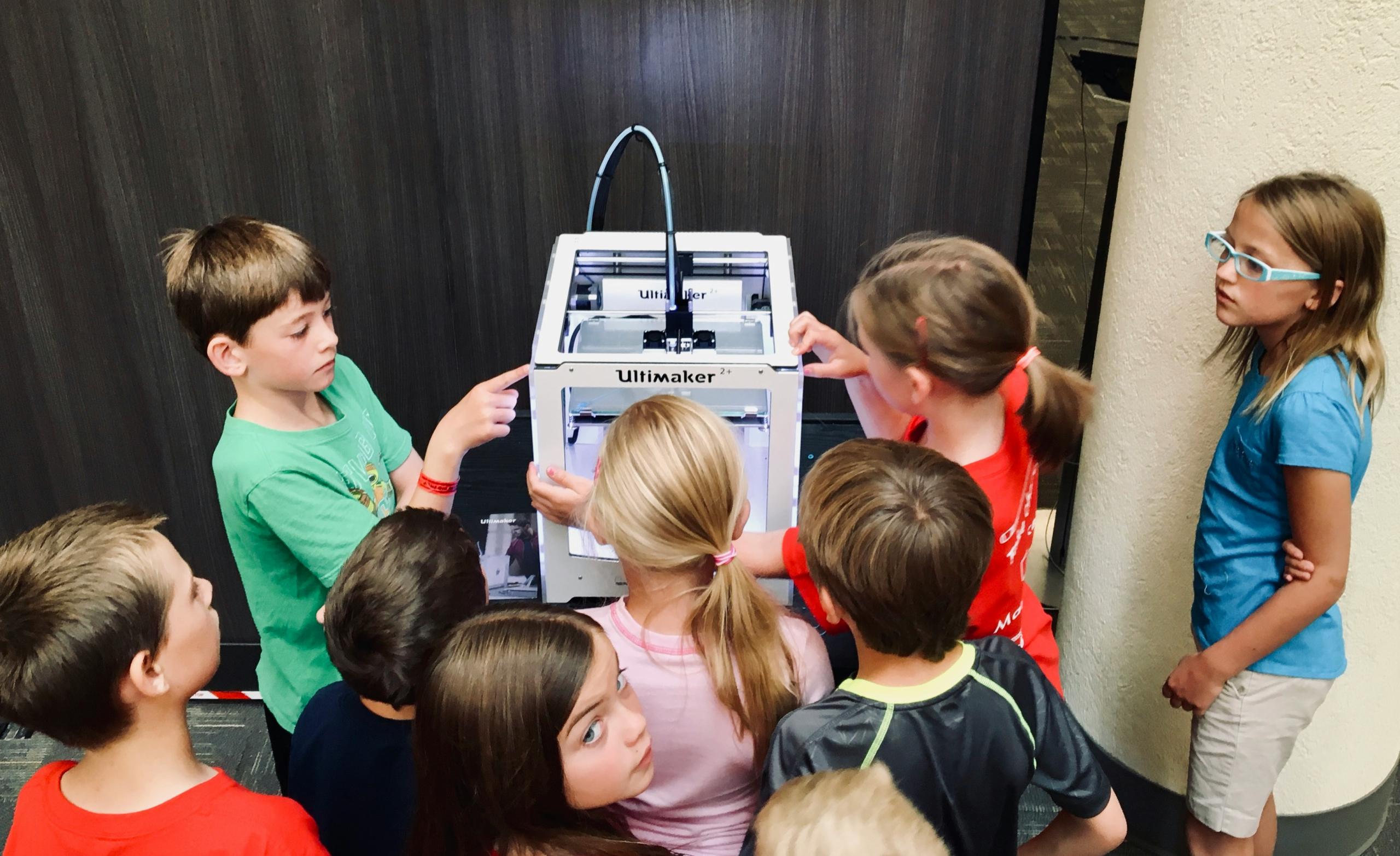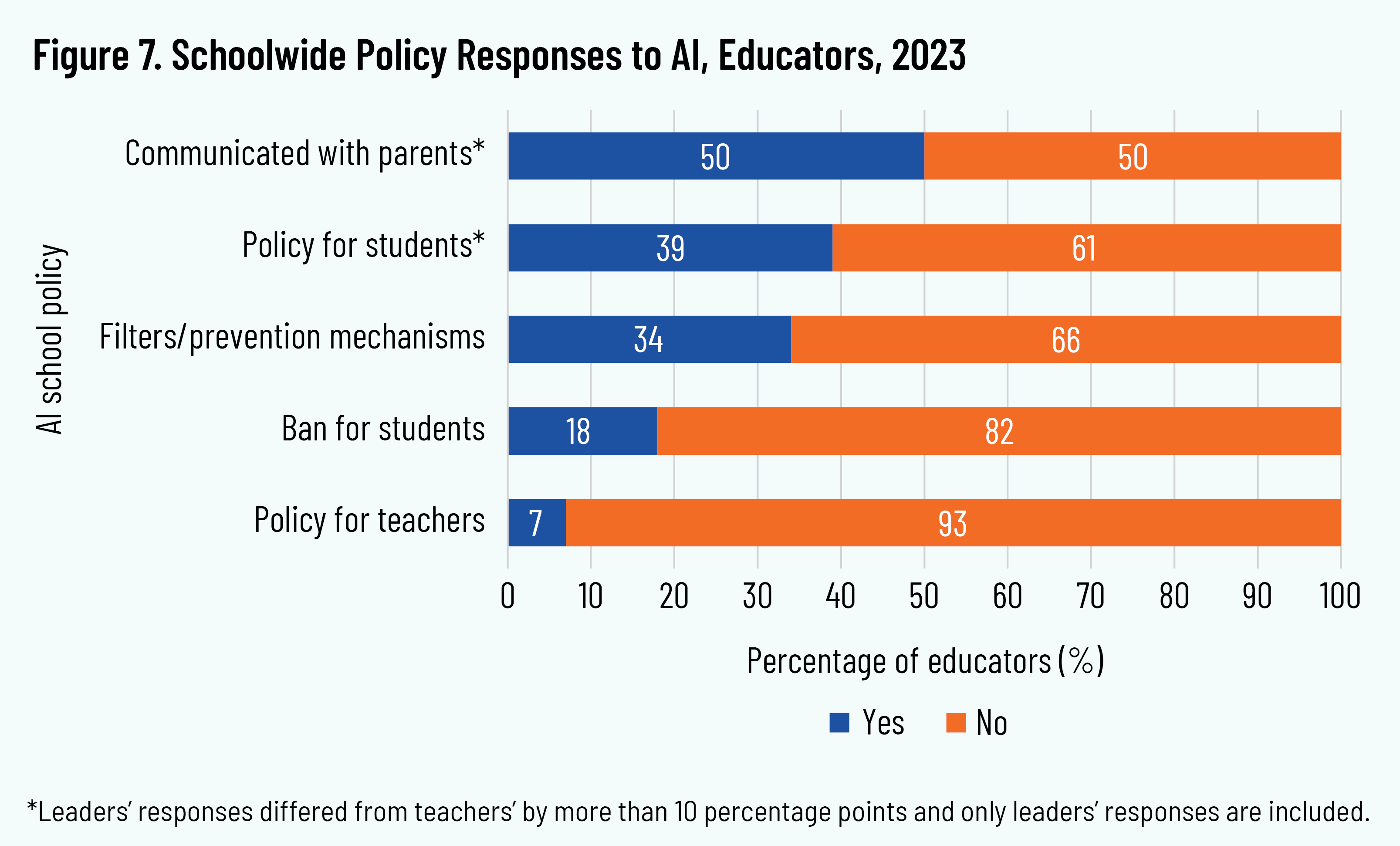Artificial Intelligence (AI) is the way of the world. As it penetrates industries across commerce, the Association of Christian Schools International (ACSI) shows Christian educators may not be as prepared to show that way as they would like.
The national organization pursues excellence in K-12 Christian education worldwide. Recently, ACSI commissioned a survey from Cardus about technology across its 2,200-member U.S. network, revealing interesting numbers about its educators’ comfort level in using and teaching AI to their students.
Among the key findings were:
- 30% of Christian educators are less than “not so familiar” or “not at all familiar” with AI
- 52% are either “never” or “rarely” planning to use AI in the classroom
- 75% of K-12 teachers in faith-based schools are less than “somewhat confident” using or teaching AI in the classroom
This survey was initiated by ACSI because the board of directors and executive staff ardently believe AI should be used to benefit students and teachers alike. ACSI President & CEO Dr. Larry Taylor believes educators’ faith should inform how they leverage AI.
“I believe AI has tremendous potential, but it’s imperative that we exemplify how to use it in a Christ-like, biblically honoring way,” he shared. “This report is extremely timely as we navigate the new norms that AI has already brought into the world of education.”
While ACSI leadership anticipates and supports the adoption of AI in the classroom, teachers often express doubt and confusion. One subject where doubt is prevalent is how AI could be leveraged directly by students.

It’s clear AI technology is here to stay, so is it up to the administration of Christian schools to equip their teachers? The survey shows that that 69% have yet to offer AI training or instruction, which may be directly related to 66% of faith-based teachers not incorporating AI in teaching and learning in the classroom.
Keeping the technology out of the students’ hands is a futile attempt as ChatGPT and other AI products become increasingly available via applications and websites. EdTech Digest offered a guest post collaboration from a few leaders in the education technology space related to AI: Caroline Jenner, Gus Schmedlen, Laura Turkington, and Bhakti Vithalani. In their submission, they put the onus on educators to help students develop the necessary ethics to handle this blossoming technology.
Educators and mentors—along with youth-serving organizations like ours and in the private sector—can mitigate the negative effects of AI, harness its potential for positive change, and empower young people to shape the future of AI responsibly, ethically, and critically.
[Additionally,] Educators can create an environment in which students feel comfortable asking questions about AI and its societal impact, and then engage students in discussions and activities that analyze the outputs of AI systems, identify patterns, and connect outputs to inputs.
ChatGPT is Causing Christian Educators to Speak Doubt

In 2015, an AI-powered software system called OpenAI was created by a collective of emerging media pioneers: Sam Altman (initial investor in Airbnb, Uber, and Doordash), Greg Brockman (early investor in education apps Lambda, Gantry, and Uplimit), Ilya Sutskever (early investor in creative companies Rosebud AI, Cerebras, and Graphcore), Wojciech Zaremba (co-founder and responsible for NLP and Codex research), John Schulman (co-founder and chief engineer), and Elon Musk.
The $29 billion organization, and chief research partner with Microsoft to accelerate AI breakthroughs, set the groundwork for ChatGPT. That viral sensation put AI in the palms of every mobile user worldwide. That’s why educators are forced to consider the technology in the classroom.
An ACSI article from March 2024 titled “Artificial Intelligence: A Choice to Build Empires or God’s Kingdom” explores the stance the organization would like its partner schools and respective teachers to have concerning AI.
“Technology, including AI, is a tool we can choose to engage with in our lives. While not inherently good or evil, its design and application can have moral implications. This aligns with the Christian understanding of stewardship; technology, like any resource, is entrusted to us by God to be used wisely and responsibly. The parable of the talents in Matthew’s Gospel highlights the importance of how we use what we are given, with technology providing leverage to amplify our efforts.”
~ Jason Toevs, Founder of Mossdale Ventures and ACSI consultant
Yet, the survey notes that most educators are concerned about the social and educational repercussions AI could have on students. “AI could help them save time and effort and develop more effective curriculum and lesson plans. However, they are concerned that AI will harm students’ integrity (cheating), learning (hindering the development of creative and critical thinking skills), safety (potential hacking or monitoring), and faith development.”
Another eye-opening finding from the ACSI survey is that teachers and administrators aren’t certain what to do with the advent of AI in their classrooms.

Like any tool, AI can be used for positive or negative reasons, depending on whose hands are leveraging the technology. While Christian teachers are in the formative stages of learning the pros and cons of AI, its benefits and disadvantages may be more subjective than necessary because it’s still an evolving advancement that conflicts with theological views and educational practices. The topic of AI is causing uncertainty more than anything else, based on the previous chart.
Educators and administrators aren’t sure how to approach AI or what to offer their students and families. One thing is certain: the dialogue has begun, and debate will ensue about artificial intelligence’s place in the faith-based classroom. Where they go from here and how AI will end up in the classroom is unknown, or whether it’s placed at a desk in front of a student or sitting in a corner with its nose on a wall.


